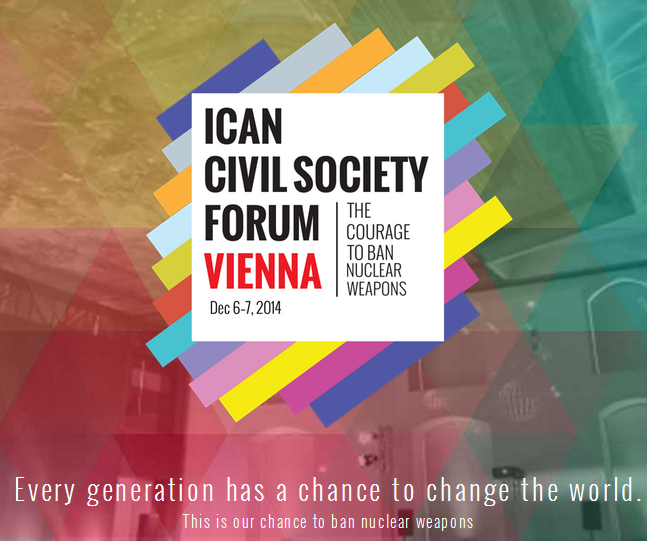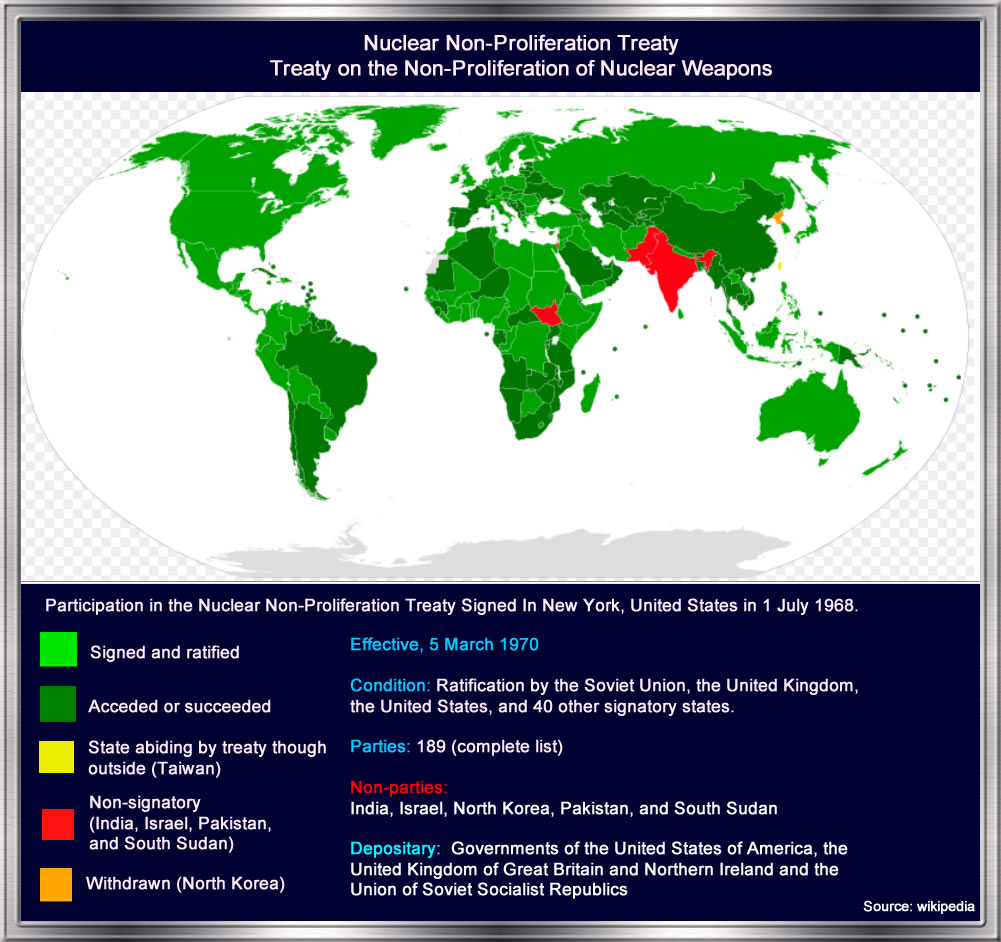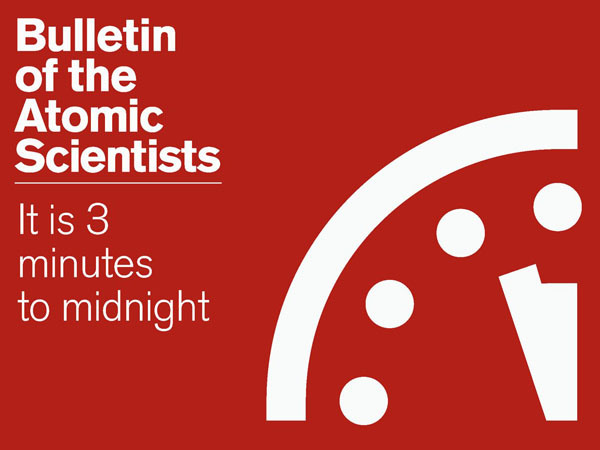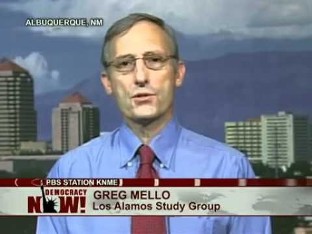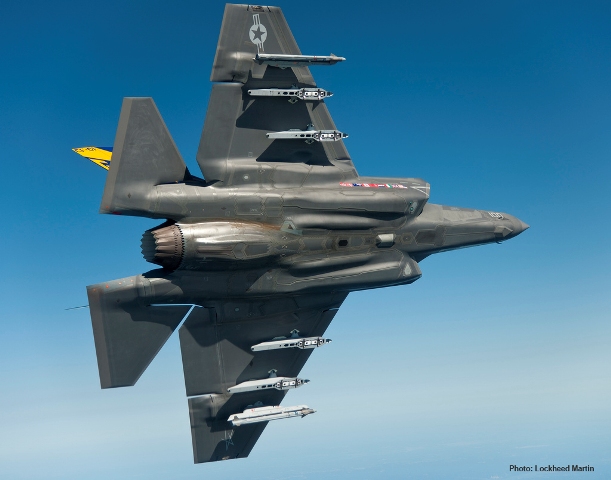Nuclear Weapons: Difference between revisions
Siterunner (talk | contribs) No edit summary |
Siterunner (talk | contribs) No edit summary |
||
| Line 7: | Line 7: | ||
''In recent years, civil society has again turned its attention to the most destructive bomb ever created and voices demanding a prohibition on these indiscriminate weapons are growing stronger every day. Past successes in the fields of disarmament, human and civil rights demonstrate the power of an engaged public, unified behind a clear cause with and actionable agenda, in achieving changes to government policy.'' | ''In recent years, civil society has again turned its attention to the most destructive bomb ever created and voices demanding a prohibition on these indiscriminate weapons are growing stronger every day. Past successes in the fields of disarmament, human and civil rights demonstrate the power of an engaged public, unified behind a clear cause with and actionable agenda, in achieving changes to government policy.'' | ||
-=-=-=-=-=-=-=-=-=-=- | -=-=-=-=-=-=-=-=-=-=- -=-=-=-=-=-=-=-=-=-=- -=-=-=-=-=-=-=-=-=-=- -=-=-=-=-=-=-=-=-=-=- -=-=-=-=-=-=-=-=-=-=- | ||
'''Update: April 2015''' | '''Update: April 2015''' | ||
Revision as of 17:45, 15 April 2015
- Nuclear Weapons -- Non-proliferation/Disarmament
Nuclear weapons remain one of the greatest threats to humankind and the world as we know it.
In recent years, civil society has again turned its attention to the most destructive bomb ever created and voices demanding a prohibition on these indiscriminate weapons are growing stronger every day. Past successes in the fields of disarmament, human and civil rights demonstrate the power of an engaged public, unified behind a clear cause with and actionable agenda, in achieving changes to government policy.
-=-=-=-=-=-=-=-=-=-=- -=-=-=-=-=-=-=-=-=-=- -=-=-=-=-=-=-=-=-=-=- -=-=-=-=-=-=-=-=-=-=- -=-=-=-=-=-=-=-=-=-=-
Update: April 2015
Pope Francis pushes for nuclear disarmament
The Vatican has long opposed nuclear weapons, but Pope Francis is making the cause one of the top diplomatic priorities of his two-year-old papacy.
In December, the Vatican submitted a paper calling for total nuclear disarmament to the Vienna Conference on the Humanitarian Impact of Nuclear Weapons. In January, Pope Francis touted nuclear disarmament as a major goal alongside climate change in his speech to the Vatican’s diplomatic corps. And on Easter Sunday, he publicly prayed that the prospective multi-nation deal to halt Iran’s nuclear weapons program would be “a definitive step toward a more secure and fraternal world.”
Many observers expect the Pope to raise the topic in his speech to the United Nations in September, especially as that event also commemorates the 50th anniversary of Pope Paul VI’s historic U.N. speech calling for “never again war, never again war”...
Archbishop Bernedito Auza, the Holy See’s Ambassador to the U.N., says. “Today there is no more argument, not even the argument of deterrence used during the Cold War, that could ‘minimally morally justify’ the possession of nuclear weapons. The ‘peace of a sort’ that is supposed to justify nuclear deterrence is specious and illusory.”
On Thursday (April 9th), two events on opposite sides of the planet signaled Pope Francis’ diplomatic reach ahead of the NPT review. In New York at the United Nations’ headquarters, the Holy See’s Mission to the U.N. and the Global Security Institute hosted a conference of diplomats and interfaith partners to promote the abolition of nuclear weapons. At the Vatican, a United States diplomatic delegation was courting Catholic Church leaders on President Obama’s commitment to nuclear disarmament.
According to US Under Secretary of State for Arms Control and International Security Rose Gottemoeller: “President Obama from the very beginning of his term in office has been very clear that his goal is to proceed with nuclear disarmament,” she says. “People think sometimes that that is just a kind of propaganda slogan out there without a lot of ‘there’ there, so I wanted to make sure that our Vatican counterparts knew the degree to which the President’s Prague initiative has become substantively a very significant part of our national policy.”
-=-=-=-=-=-=-=-=-=-=- -=-=-=-=-=-=-=-=-=-=-
What is the extent of the President's 'commitment' to nuclear disarmament?
Obama administration undermines UN disarmament efforts
National Catholic Reporter, by Stephen Zunes
Though the United States may have taken the lead in the international diplomatic initiative against Iran's nuclear program, the Obama administration has also taken the lead in undermining the United Nations' efforts to promote nuclear arms control and disarmament elsewhere.
In a series of moves that received very little media attention in this country, the United Nations General Assembly in December adopted 57 resolutions recommended by the U.N.'s Disarmament and International Security Committee. However, the United States, more than any other member state of the 193-member body, cast votes in opposition to many of these modest efforts...
[T]he U.S. was one of only seven countries to vote against a resolution calling for accelerating the implementation and monitoring of nuclear disarmament commitments and was one of only three countries to vote against a paragraph in the resolution emphasizing the importance of a successful review conference for the Nuclear Nonproliferation Treaty (NPT) later this year.
In a resolution stressing the fundamental role of the NPT in achieving nuclear disarmament and nonproliferation and urging India, Israel and Pakistan to accede to it as non-nuclear-weapon states, the U.S. was the only country other than these three last NPT holdouts to vote against it. The U.S. was also the only country to join these three countries in voting against the call for them to place their nuclear facilities under International Atomic Energy Agency safeguards.
§
Treaty on the Non-Proliferation of Nuclear Weapons - http://disarmament.un.org/treaties/t/npt
-=-=-=-=-=-=-=-=-=-=- -=-=-=-=-=-=-=-=-=-=- -=-=-=-=-=-=-=-=-=-=- -=-=-=-=-=-=-=-=-=-=-
Vienna Conference on the Humanitarian Impact of Nuclear Weapons documents
December 2014
Message from Pope Francis [1] [2] The Catholic Church formulates a new policy on the ethics of nuclear deterrence
Humanitarian Impacts of Nuclear Weapons
Nobel Peace Laureates Call for Treaty Banning Nuclear Weapons
Reaching Critical Will Filling the Gap
United Nations Institute for Disarmament Research (UNIDIR)
International Campaign to Abolish Nuclear Weapons
Conference Report from Open Democracy
-=-=-=-=-=-=-=-=-=-=- -=-=-=-=-=-=-=-=-=-=-
The Vienna Conference on the Humanitarian Impact of Nuclear Weapons took place from 8 to 9 December 2014. It addressed the humanitarian consequences of any use of nuclear weapons, including effects on human health, the environment, agriculture and food security, migration and the economy, as well as the risks and likelihood of the authorized or unauthorized use of nuclear weapons, international response capabilities and the applicable normative framework.
Delegations representing 158 States, the United Nations, the International Committee of the Red Cross, the Red Cross and Red Crescent movement, civil society organisations and academia participated in the Conference.
- The UN Secretary General and Pope Francis conveyed messages to the Conference.
- The President of the ICRC addressed the participants. Hibakusha, the survivors of the nuclear explosions in Hiroshima and Nagasaki, and victims of the effects of nuclear testing also participated in the Conference and gave their testimonies and experiences. Their presence and contributions exemplified the unspeakable suffering caused to ordinary civilians by nuclear weapons.
- The Vienna Conference built upon the fact-based discussions at the first and second Conferences on the Humanitarian Impact of Nuclear Weapons, held respectively in Oslo and Nayarit, and contributed to a deeper understanding of the consequences and the actual risks posed by nuclear weapons. Moreover, these further discussions underlined the extreme challenges for humanitarian response in the event of nuclear weapon explosions in populated areas. Furthermore, it presented a “bird’s eye view” on international norms and the humanitarian impact of nuclear weapons. Key conclusions from the substantive sessions included the following:
•
The impact of a nuclear weapon detonation, irrespective of the cause, would not beconstrained by national borders and could have regional and even global consequences, causing destruction, death and displacement as well as profound and long-term damage to the environment, climate, human health and well-being, socioeconomic development, social order and could even threaten the survival of humankind.
•
The scope, scale and interrelationship of the humanitarian consequences caused by nuclear weapon detonation are catastrophic and more complex than commonly understood. These consequences can be large scale and potentially irreversible.
•
The use and testing of nuclear weapons have demonstrated their devastating immediate, mid-and long-term effects. Nuclear testing in several parts of the world has left a legacy of serious health and environmental consequences. Radioactive contamination from these 2 tests disproportionately affects women and children. It contaminated food supplies and continues to be measurable in the atmosphere to this day.
•
As long as nuclear weapons exist, there remains the possibility of a nuclear weapon explosion. Even if the probability is considered low, given the catastrophic consequences of a nuclear weapon detonation, the risk is unacceptable. The risks of accidental, mistaken, unauthorized or intentional use of nuclear weapons are evident due to the vulnerability of nuclear command and control networks to human error and cyberattacks, the maintaining of nuclear arsenals on high levels of alert, forward deployment and their modernization. These risks increase over time. The dangers of access to nuclear weapons and related materials by non-state actors, particularly terrorist groups, persist.
•
There are many circumstances in which nuclear weapons could be used in view of international conflicts and tensions, and against the background of the current security doctrines of States possessing nuclear weapons. As nuclear deterrence entails preparing for nuclear war, the risk of nuclear weapon use is real. Opportunities to reduce risk must be taken now, such as de-alerting and reducing the role of nuclear weapons in security doctrines. Limiting the role of nuclear weapons to deterrence does not remove the possibility of their use. Nor does it address the risks stemming from accidental use. The only assurance against the risk of a nuclear weapon detonation is the total elimination of nuclear weapons.
•
No state or international body could address in an adequate manner the immediate humanitarian emergency or long-term consequences caused by a nuclear weapon detonation in a populated area, nor provide adequate assistance to those affected. Such capacity is unlikely ever to exist. Coordinated preparedness may nevertheless be useful in mitigating the effects including of a terrorist event involving the explosion of an improvised nuclear device. The imperative of prevention as the only guarantee against the humanitarian consequences of nuclear weapons use was highlighted.
•
Looking at nuclear weapons from a number of different legal angles, it is clear that there is no comprehensive legal norm universally prohibiting possession, transfer, production and use. International environmental law remains applicable in armed conflict and can pertain to nuclear weapons, although it does not specifically regulate these arms.
•
Likewise, international health regulations would cover effects of nuclear weapons. The new evidence that has emerged in the last two years about the humanitarian impact of nuclear weapons casts further doubt on whether these weapons could ever be used in conformity with IHL. As was the case with torture, which defeats humanity and is now unacceptable to all, the suffering caused by nuclear weapons use is not only a legal matter, it necessitates moral appraisal.
•
The catastrophic consequences of a nuclear weapon detonation event and the risks associated with the mere existence of these weapons raise profound ethical and moral questions on a level transcending legal discussions and interpretations.
-=-=-=-=-=-=-=-=-=-=-
General views and policy responses of the Conference
States, international organisations, UN entities, the Red Cross and Red Crescent movement and civil society representatives recalled their deep concern at the catastrophic humanitarian consequences of any use of nuclear weapons. They welcomed the convening of the Vienna Conference on the Humanitarian Impact of Nuclear Weapons. Participants appreciated the 3 testimonials of survivors of nuclear weapons use and testing, including for educating and raising awareness among youth. Many delegates expressed concern about the limited progress in nuclear disarmament and stressed the view that humanitarian considerations should no longer be ignored but be at the core of all nuclear disarmament deliberations.
They welcomed the broad participation, including by several nuclear weapons possessor states. They also considered that the discussions would contribute to the implementation of the 2010 NPT Review Conference Action Plan and earlier undertakings and the achievement of a meaningful outcome to the 2015 NPT Review Conference that takes nuclear disarmament efforts forward. Moreover, they reiterated the importance of the entry into force of the Comprehensive Nuclear-Test-Ban Treaty as a key element of the international nuclear disarmament and non-proliferation regime.
Many delegations expressed their concern that military doctrines in several States continued to set forth rationales and operational planning for the use of nuclear weapons.
Many delegations noted that the discourse on the humanitarian impact of nuclear weapons has revealed that nuclear weapons pose an unacceptable risk, that this risk is higher than commonly understood and that it continues to increase over time. Protection of civilians is a fundamental duty of States and requires particular care on their part.
Many delegations affirmed that in the interest of the very survival of humanity nuclear weapons must never be used again, under any circumstances.
Many delegations considered that the existence and possible use of nuclear weapons and the resulting unacceptable consequences raise profound moral and ethical issues.
In light of sustainable development challenges, concern was expressed about the diversion of funds for nuclear weapons.
Many delegations considered that the growing understanding of the risk posed by nuclear weapons, including the likelihood and devastating humanitarian consequences of their use, underscores the urgent need for all States to pursue effective measures for the achievement of nuclear disarmament.
States expressed various views regarding the ways and means of advancing the nuclear disarmament agenda. A range of legally binding collective approaches to achieving progress toward a world without nuclear weapons was discussed. Many delegations reaffirmed that the total elimination of nuclear weapons is the most effective way to prevent their use.
Many delegations expressed appreciation for the important contribution of civil society and researchers in all aspects of advancing nuclear disarmament and non-proliferation and the achievement of a world without nuclear weapons. The necessity of a multilateral and inclusive approach in pursuing this objective was highlighted by many delegations.
The majority of delegations underscored that the final elimination of nuclear weapons should be pursued within an agreed legal framework, including a nuclear weapons convention.
A number of delegations argued that a step-by-step approach was the most effective and practical way to achieve nuclear disarmament, referring in particular to the entry into force of the CTBT and a Treaty banning the production of fissile material for nuclear weapons. These delegations also noted that the global security environment needs to be taken into consideration in discussions about nuclear weapons and nuclear disarmament. In this connection, they promoted various unilateral, bilateral, plurilateral and multilateral, building blocks that should and can be taken in the near-to mid-term in support of a world without nuclear weapons.
Many delegations stressed the need for security for all and underscored that the only way to guarantee this security is through the total elimination of nuclear weapons and their prohibition. They expressed support for the negotiation of a new legal instrument prohibiting nuclear weapons constituting an effective measure towards nuclear disarmament, as required also by the NPT.
It was recognized that the obligation to pursue effective measures for nuclear disarmament, as expressed in article VI of the NPT, resides with each State Party, and that there are practical steps that States can take now to pursue such measures in good faith.
A number of delegations considered that the inability to make progress on any particular step was no reason not to pursue negotiations in good faith on other effective measures to achieve and maintain a nuclear-weapon-free world. Such steps have been taken very effectively in regional contexts in the past, as evidenced by nuclear weapon free zones.
Participants at the Vienna Conference were conscious that 2015 marks the 70th anniversary of the use of nuclear weapons in Hiroshima and Nagasaki and that calls for nuclear disarmament in this connection have been palpable and poignant. They considered that it is critical to sustain partnerships among States, the Red Cross Movement, international organisations, Parliamentarians and civil society with a view to translating the widespread concerns about the risks and consequences associated with nuclear weapons into concerted steps to achieve a world without these armaments.
The overwhelming majority of NPT States Parties expects that the forthcoming 2015 NPT Review Conference should take stock of all relevant developments, including the outcomes of the Conferences on the Humanitarian Impact of Nuclear Weapons, and determine the next steps for the achievement and maintenance of a nuclear-weapon-free world.
-=-=-=-=-=-=-=-=-=-=-
- Nuclear Weapons -- Current Issues, Definitions and Developments
The official US position as stated to the international community:
http://www.state.gov/t/avc/rls/2014/235355.htm
U.S. Perspectives on the Opportunities and Challenges of Nuclear Disarmament
Remarks Robert Wood Special Representative to the Conference on Disarmament Geneva Center for Security Policy Geneva, Switzerland December 17, 2014
...nuclear disarmament is under particularly close scrutiny as we approach the 2015 Nuclear Non-Proliferation Treaty Review Conference, which we refer to in the shorthand of this business as the “NPT RevCon.”
... The United States also has reduced the role of nuclear weapons in its national security strategy as outlined in the U.S. Nuclear Posture Review (NPR). Specifically, as outlined in the 2010 NPR, the United States will not develop new nuclear warheads, and life extension programs for existing weapons will not support new military capabilities or provide for new military capabilities. Additionally, as reflected in the NPR, the United States has strengthened the negative security assurances that it provides to non-nuclear weapon states who are party to the NPT, and made clear that the United States would only consider the use of nuclear weapons in extreme circumstances to defend the vital interests of the United States or its allies and partners.
◊
Congressional Budget Office - Nuclear Arsenal to Cost $348 Billion
CBO/JANUARY 2015 Projected Costs of U.S. Nuclear Forces, 2015 to 2024 - PDF
-=-=-=-=-=-=-=-=-=-=-
- The 2015 Non-Proliferation Review Conference, New York, April/May
Nuclear Weapons/Arms Control/Non-Proliferation/Disarmament Issues
UN
http://www.un.org/disarmament/WMD/Nuclear/NPT_Review_Conferences.shtml
http://www.un.org/disarmament/WMD/Nuclear/NPT2015/PrepCom2014/
- -
Calls to Participate
'from the Netherlands'
http://www.nonproliferation.org/wp-content/uploads/2014/12/141217_npt_academic_symposium_2015.pdf
Academic experts contribute to the review process through the generation of new ideas and concepts. Also, while governments are oftentimes bound by political and other practical constraints, scholars can contemplate issues more independently and with a longer time horizon. For that reason, the Netherlands government has taken the initiative to organize, together with the United Nations Office for Disarmament Affairs (UNODA), the Belfer Center for Science and International Affairs of Harvard University, and the James Martin Center for Nonproliferation Studies at the Monterey Institute an academic symposium at the start of the 2015 Review Conference, to take place on April 28.
- -
NGOs
http://www.armscontrol.org/issuebriefs
http://www.ctbto.org/press-centre/ctbt-in-the-news/
https://www.iaea.org/newscenter/focus/npt/npt-prepcom-sessions
http://www.ploughshares.org/blog/2014-12-09/earlywarning/pope-francis-lays-out
http://www.reachingcriticalwill.org/disarmament-fora/npt
Wiki community
http://en.wikipedia.org/wiki/2010_NPT_Review_Conference
Tags
https://twitter.com/hashtag/HINW14vienna?src=hash #HINW
https://twitter.com/hashtag/RevCon?src=hash #RevCon
https://twitter.com/hashtag/NPT?src=hash #NPT
https://twitter.com/hashtag/nuclearweapons?src=hash #nuclearweapons
https://twitter.com/hashtag/UNIDIR?src=hash #UNIDIR
-=-=-=-=-=-=-=-=-=-=-
http://en.wikipedia.org/wiki/Treaty_on_the_Non-Proliferation_of_Nuclear_Weapons
http://www.greenpolicy360.net/w/NPT_-_Treaty_on_the_Non-Proliferation_of_Nuclear_Weapons
◊
- 3 Minute Warning
January 2015
Doomsday Clock Moved to 3 Minutes to Midnight
◊
- Cold War - Redux
The return of a Cold War conditions forebodes a heating up of nuclear weapons policy. News systems are budgeted and in development. ‘Modernization’ and ‘stewardship’ auger a next generation of nuclear capabilities and nuclear risk, proliferation and potential for mistakes, miscalculation, error, provocation, escalation, and war. With nuclear war will come disaster.
Historically, our era is at another turning point. The road of negotiation that was followed for the past two decades after the collapse of the Soviet Union is no longer a path toward general peace. The political forces that pushed and accomplished a set of treaties and agreements including START and the New START now are under political pressure and new nuclear capabilities are the order of the day.
Although one can debate the extent of new nuclear weapons development -- warheads, systems, missiles and delivery vehicles, including the newly revealed nuclear-carrying mission for the advanced F-35 -- it cannot be disputed that any number of nuclear weapons nations are ‘upgrading’ and deploying nextgen nukes.
In jeopardy are nuclear weapons treaty regimes. Efforts toward non-proliferation, testing and new capability bans, disarmament reductions, and roll back of 'hair-trigger' instant-response launch-on-warning systems are in the process of being halted and pushed back. Progress toward nuclear risk reduction has slowed and an escalating risk horizon is presenting multiple scenarios with potential for flashpoints.
Let’s take a look at how one nuclear expert views the current situation.
GreenPolicy's associated site, Strategic Demands, sees these nuclear scenarios and decisions:
1) The outright ban nuclear weapons position;
2) The position of the past twenty plus years of a gradual, step-by-step reduction of nuclear weapons and delivery capabilities;
3) A move to ‘modernize’ the nuclear weapons complex and re-deploy for the next generation;
4) A move to deploy ‘usable’ tactical nuclear weapons and systems argued by those urging first-use, preemptive strikes, ‘bunker-busting’ and updated cruise/sub-launched missiles as part of a broader Mideast war strategy.
Before we consider over the coming months each of these strategic options, here is the point of view of Greg Mello of the Los Alamos Study Group. Greg Mello/LASG have three decades of experience in monitoring nuclear weapons developments.
◊
GM/LASG -- Immediately following the [January International Nuclear Weapons] Conference, the 14th World Summit of Nobel Peace Laureates was held in Rome. The Nobel Peace Laureates issued this explicit call for a ban on nuclear weapons:
There are over 16,000 nuclear weapons in the world today. As the recent 3rd International Conference on the Humanitarian Impact of Nuclear Weapons concluded: the impact of the use of just one is unacceptable. A mere 100 would lower the earth’s temperature by over 1 degree Celsius for at least ten years, causing massive disruption of global food production and putting 2 billion people at risk of starvation. If we fail to prevent nuclear war, all of our other efforts to secure peace and justice will be for naught. We need to stigmatize, prohibit and eliminate nuclear weapons.
Meeting in Rome, we commend Pope Francis’ recent call for nuclear weapons to be “banned once and for all”. We welcome the pledge by the Austrian government “to identify and pursue effective measures to fill the legal gap for the prohibition and elimination of nuclear weapons” and “to cooperate with all stakeholders to achieve this goal.”
We urge all states to commence negotiations on a treaty to ban nuclear weapons at the earliest possible time, and subsequently to conclude the negotiations within two years. This will fulfill existing obligations enshrined in the Nuclear Non-Proliferation Treaty, which will be reviewed in May of 2015, and the unanimous ruling of the International Court of Justice. Negotiations should be open to all states and blockable by none. The 70th anniversary of the bombings of Hiroshima and Nagasaki in 2015 highlights the urgency of ending the threat of these weapons.
◊
Greg Mello's position regarding the international Conference and call by the Nobel Peaces Laureates continues:
I hope you appreciate that this is NOT a vague call for nuclear disarmament in general – sort of disarmament or nuclear abolition “not otherwise specified.” Still less is it a “vision” of disarmament, or a vision of a hypothetical “world without nuclear weapons.” Such vague clichés have little value today.
Neither is this statement an endorsement of step-by-step disarmament under a paradigm in which nuclear deterrence is considered legitimate. It is silent on bilateral or multilateral disarmament negotiations. It is not an endorsement of reciprocal unilateral disarmament steps. It is not an endorsement of “confidence-building measures,” or of entry-into-force of the Comprehensive Test Ban Treaty (CTBT). It is not an endorsement of a comprehensive binding nuclear disarmament treaty – a nuclear weapons convention.
All these measures, attractive as some of them are, require the support and cooperation of nuclear weapon states. Negotiations to achieve them are rooted in the security policies of nuclear weapon states, and begin on the basis of the legitimacy of nuclear weapons and nuclear deterrence. That is not what the Nobel Peace Laureates said.
By contrast, most U.S. reporting about the Vienna Conference, led by this statement submitted to the Conference by the Arms Control Association and others, and by this statement from 118 notable arms control and disarmament figures, is rooted in current security policies and hence the tacit validity of nuclear deterrence. Such reporting completely omits mention of what was novel in the Vienna Conference, namely an explicit call for a ban on nuclear weapons expressed by dozens of states, the Pope, hundreds of NGOs, and now the Nobel Peace Laureates.
Vienna Conference vigorously advances efforts to ban nuclear weapons - Permalink ---- Los Alamos Study Group - News
◊
The following links are LASG references:
http://en.wikipedia.org/wiki/Nuclear_Posture_Review
http://en.wikipedia.org/wiki/Normal_Accidents
http://en.wikipedia.org/wiki/Black_swan_theory
http://www.armscontrol.org/issuebriefs
http://www.nucleardarkness.org/globalnucleararsenal/usrussianhighalert/
◊
A core concern at Strategic Demands is the modernization and new capability add-ons to the B61 nuclear weapon system.
The weapon labs, which are reported on by the Los Alamos Study Group, are also followed by the New Mexico based Nuke Watch...
◊
The consequences of the forward-deployment of next generation nuclear weapons will bring a response...
"From the violation of Ukrainian national borders, to the breach of the Budapest memorandum, through to Putin's ominous August rhetoric reminding Western leaders of Russia's status as a strong nuclear power, events in Eastern Europe have led to worsening of an already difficult climate for discussions on the issue of removal of American B61 gravity bombs deployed in five European states.
"...existing defense and deterrence mechanisms, international legal and allied security guarantees and assurances, and their viability and effectiveness, have been subject to renewed examination..."
"Against such a climate of uncertainty, insecurity and confrontation, it is difficult to imagine a serious consideration of prospects for nuclear disarmament in Europe by political leaders from NATO member states."
◊
http://fas.org/programs/ssp/nukes/publications1/Brief2013_B61-12.pdf -- http://fas.org/blogs/security/2014/01/b61capability/
http://defensetech.org/2014/02/28/nuclear-bomb-upgrade-could-violate-key-treaty/ -- http://www.spiegel.de/international/world/upgrading-us-nuclear-weapons-more-expensive-than-planned-a-833586.html
http://www.greenpolicy360.net/w/File:B61_before_tail_kit.jpg -- http://strategicdemands.com/going_bzhrk/
